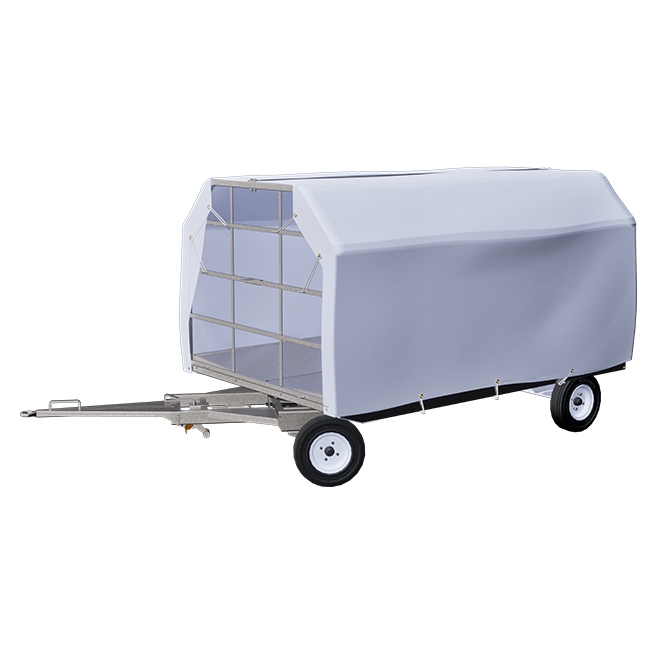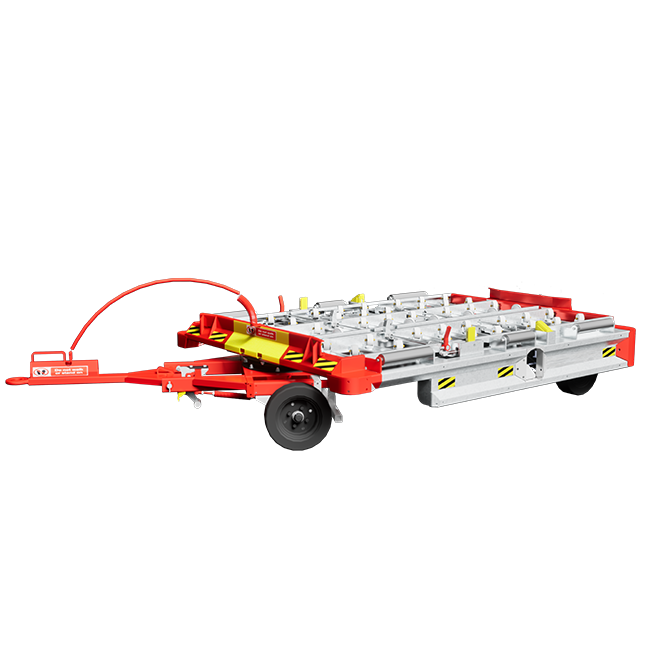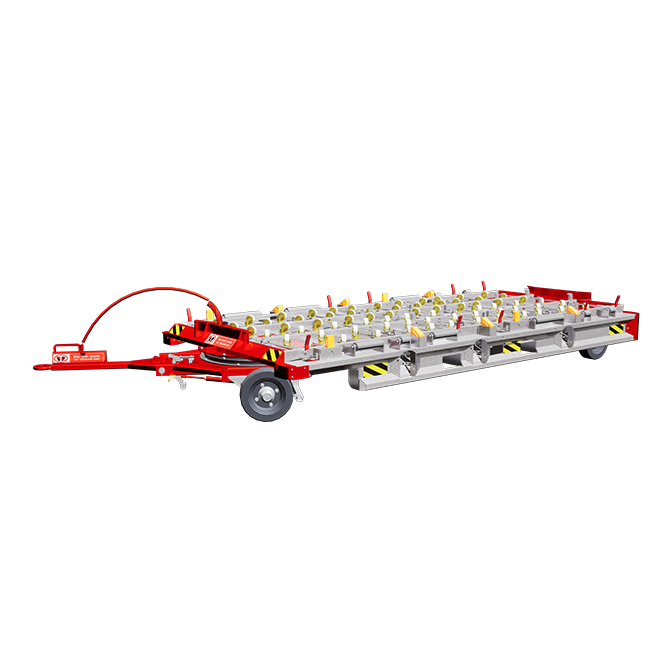Trailers & cargo dollies – Enhancing
cargo handling with
efficient airport
cargo dollies
Efficient ground support equipment is essential for smooth airport cargo operations. An airport cargo dolly is a fundamental component in air freight logistics, designed to transport unit load devices (ULDs) and cargo pallets seamlessly between aircraft, warehouses, and other operational areas. With a robust design, these wheeled platforms ensure the safe and efficient movement of freight within airport terminals, improving handling efficiency and minimising loading times.
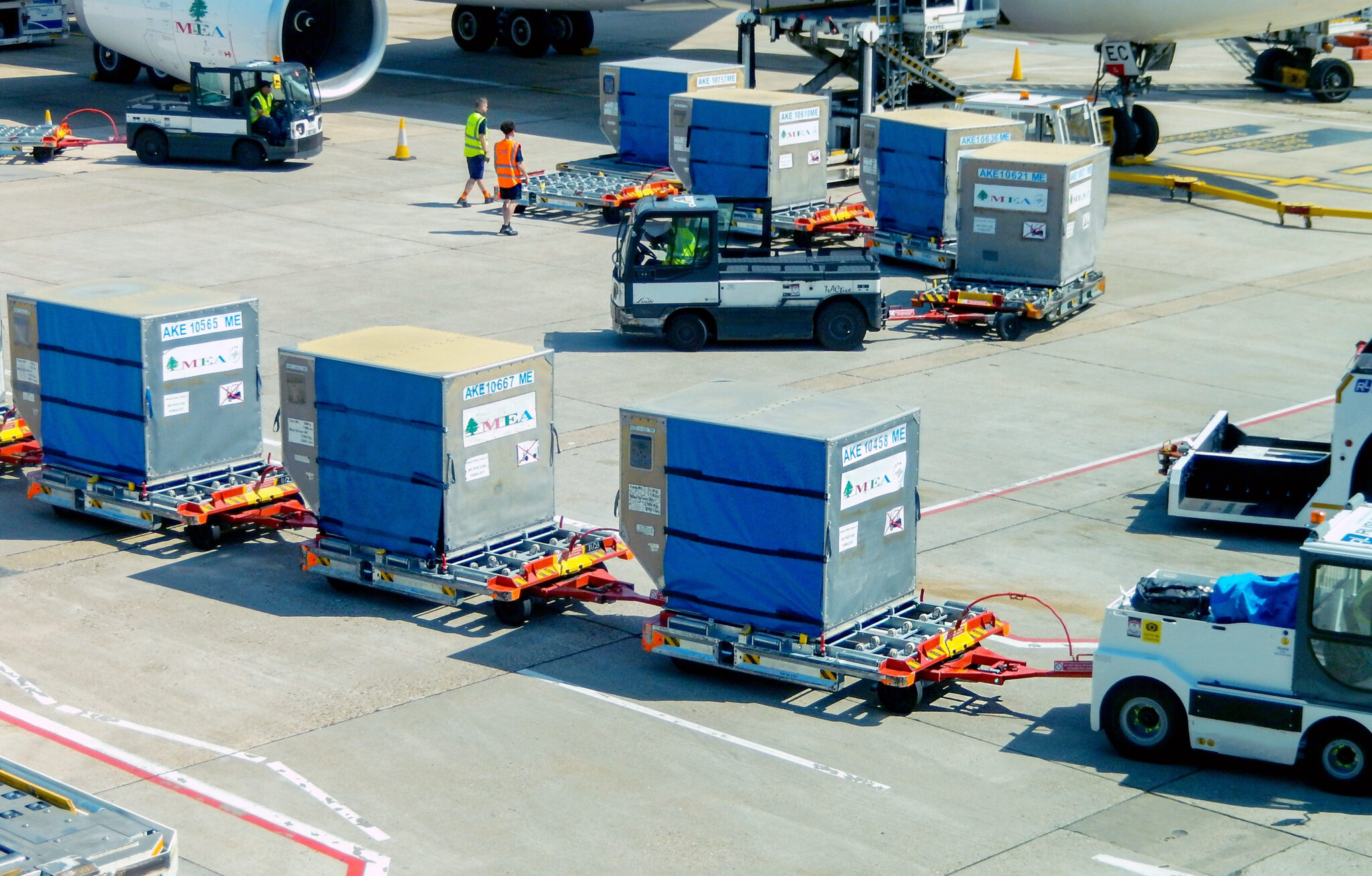
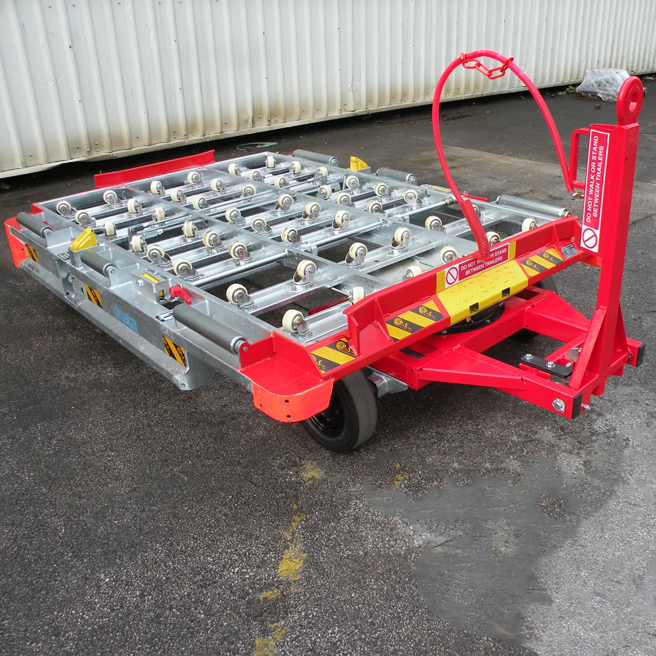
Key features of airport cargo dollies
Cargo dollies are specifically engineered to support different pallet and container sizes, ensuring versatility in cargo transportation. These essential ground support units come equipped with various technical features, including:
- Durable construction – built from robust, corrosion-resistant steel for long service life under heavy use.
- High manoeuvrability – swivel caster systems and heavy-duty wheels allow smooth movement on busy ramps.
- Tow bar integration – enables easy connection to ground vehicles for efficient towing in trains.
- Secure load handling – pallet stops and locking mechanisms prevent ULDs or pallets from shifting during transport.
- Standards compliance – compatible with common ULD and pallet dimensions (e.g. 125 × 96 in), ensuring versatility.
- Operational reliability – designed to combine safety, efficiency, and low maintenance in daily use.
Versatile applications in airport cargo operations
Airport cargo dollies are utilised for multiple handling requirements, making them an indispensable tool in aviation logistics. their primary applications include:
- Specialised container dolly operations: allowing secure transport of sensitive and high-value goods.
- Transportation of cargo pallets: facilitating the efficient movement of cargo pallets from aircraft to warehouse storage areas.
- ULD handling: supporting the transfer of unit load devices, ensuring timely loading and unloading.
- Inter-terminal logistics: enabling quick and efficient movement of goods between airport terminals.
Advantages of using airport cargo dollies
Integrating cargo dollies into airport operations provides numerous benefits, including:
- Faster turnaround times – streamline the movement of ULDs and pallets between aircraft, storage, and warehouses.
- Operational flexibility – can be used individually or in trains, adapting to different cargo volumes and workflows.
- Enhanced safety – secure locks and pallet stops keep cargo stable, reducing the risk of accidents or damage.
- Cost efficiency – durable, low-maintenance design lowers operational costs and extends equipment lifespan.
- Improved ergonomics – easy manoeuvrability reduces physical strain on operators.
- Seamless integration – compatible with international standards, ensuring smooth coordination across airports worldwide.
High-quality design and durability
Viking Airport Equipment is built to last. Using high-grade steel and corrosion-resistant finishes, their products feature strong one-piece welded frames and comply with IATA and European standards. Designed with input from ground staff, the equipment combines rugged reliability with smart, user-friendly details. The result: safe, durable solutions that perform under the toughest airport conditions, year after year.
Customised solutions for airport cargo handling
Different airports and cargo operations require tailored equipment to meet specific logistical demands. Manufacturers offer customisable cargo dollies, allowing operators to choose features such as adjustable pallet stops, enhanced towing capabilities, and modular configurations to suit unique operational needs. These adaptable solutions ensure seamless integration into existing airport cargo workflows.
Investing in high-quality cargo dollies is essential for optimising airport logistics, improving cargo flow, and ensuring the safe and efficient transportation of air freight. With robust construction, versatile applications, and advanced safety features, these essential ground support units continue to play a vital role in modern airport cargo operations.
